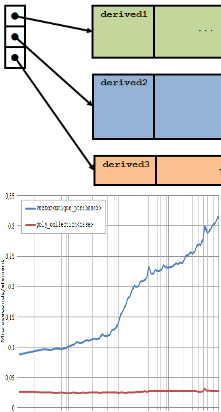Talks for Meeting C++ 2014 are online
I released most of the talks for this years Meeting C++ conference:
Meeting C++ 2014 - Talks
I have yet only published the talks where I could reach the speakers. So some more to come. The popular Track in the mainhall is also alreay known:
- Monads in chains
- Expression Templates Revisited: Separating Facts from Urban Legends
- Pruning Error Messages From C++ Template Code
- Sqlpp11, An EDSL For Type-Safe SQL In C++ For Databases, Containers, Streams And More
- Multithreading done right?
- Testdriven C++ with Catch
- The C++ Memory Model
The schedule will be online around the beginning of June.

 On the theme of "contiguous enables fast":
On the theme of "contiguous enables fast": Do you "comprehend" ranges? From a key participant in some of the latest discussion about ranges for C++:
Do you "comprehend" ranges? From a key participant in some of the latest discussion about ranges for C++: